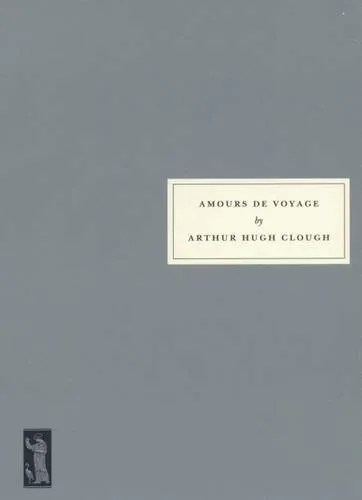
Amours de Voyage (1849) is a novel in verse and is arranged in five cantos, or chapters, as a sequence of letters. It is about a group of English travellers in Italy: Claude, and the Trevellyn family, are caught up in the 1849 political turmoil. The poem mixes the political ('Sweet it may be, and decorous, perhaps, for the country to die; but, /On the whole, we conclude the Romans won't do it, and I sha'n't') and the personal ('After all, do I know that I really cared so about her?/Do whatever I will, I cannot call up her image'). The political is important - hence the Persephone edition reproduces nine London Illustrated News drawings of the battlefront - but the personal dilemmas are the crucial ones. Claude, about to declare himself, retreats, then regrets his failure to speak. It is this retreat, his scruples and fastidiousness, that, like a conventional novel, is the core of Amours de Voyage. The poem thus contributed something important to the modern sensibility; it is a portrait of an anti-hero; it is about love and marriage (the difficulties of); and it is about Italy.Clough wrote to his mother: 'St Peter's disappoints me: the stone of which it is made is a poor plastery material; and indeed, Rome in general might be called a rubbishy place - The weather has not been very brilliant.' As Julian Barnes points out in his new Persephone Preface: 'If you want a one-word introduction to the tone, sensibility and modernity of Arthur Hugh Clough, you have it in that single, italicised (by him, not me) word: rubbishy.' Clough was unimpressed by Rome and so is his hero, Claude, 'a very unGrand Tourist'. 'What his friend Arnold perceived to be the weaknesses of Clough's poetry, ' continues Julian Barnes, 'are precisely what over time have come to seem its strengths - a prosey colloquiality which at times verges on awkwardness, a preference for honesty and sarcasm over suavity and tact, a direct criticism of modern life, a naming of things as themselves. It is absolutely contemporary...It is also a highly contemplative and argumentative poem, about history, civilisation and the individual's duty to act.And it is, as the title tells us, a love story - or, this being Clough, a sort of modern, near-miss, almost-but-not-quite love story ( I am in love you say; I do not think so, exactlyA) with mismatching, misunderstanding, tortuous self- searching, and a mad, hopeful, hopeless pursuit leading us to a kind of ending
Arthur Hugh Clough
Arthur Hugh Clough, a Victorian poet known for his poem "The Bothie of Tober-na-Vuolich," blended classical and modern themes in his works. His unique style combined skepticism with a search for faith, reflecting the uncertainties of his time. Clough's contributions to literature include his exploration of moral and ethical dilemmas.